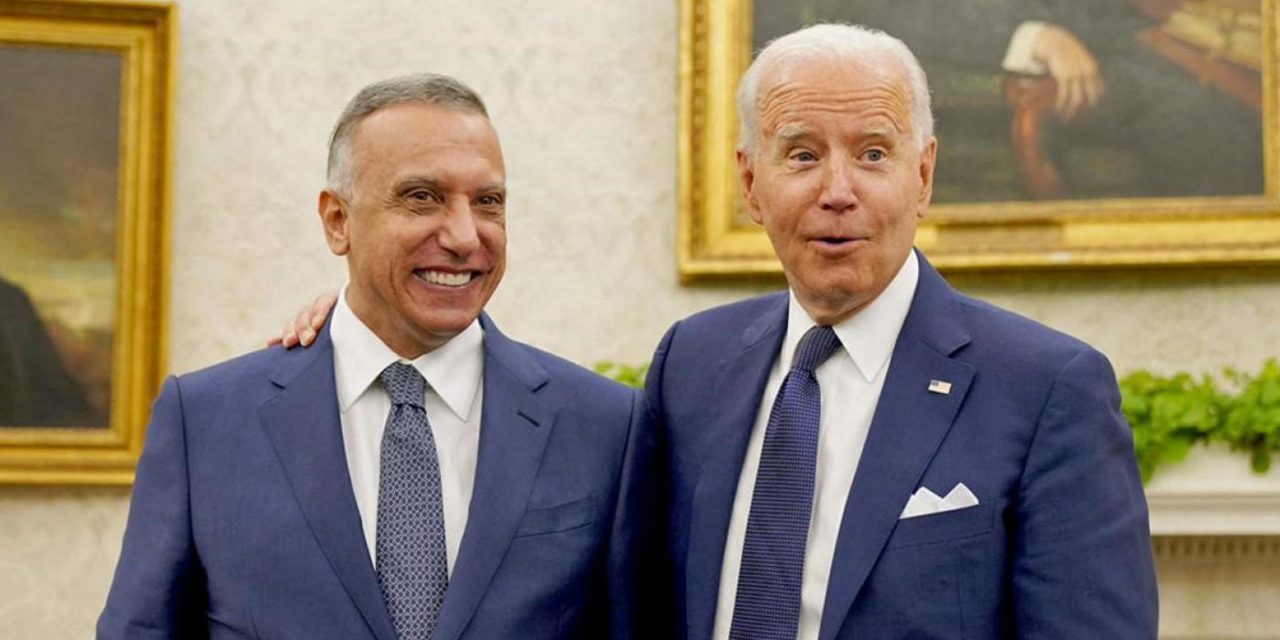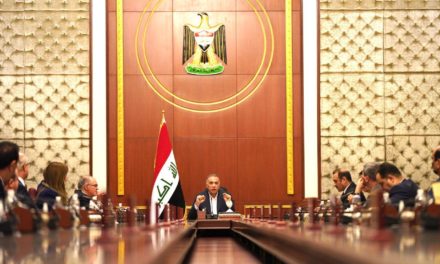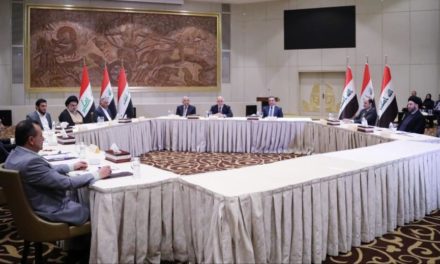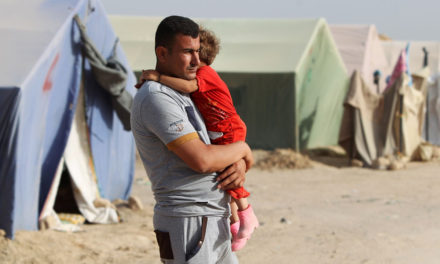(Photo: AFP)
On June 25, 2021, President Joe Biden stood beside his “old friend” and Afghan counterpart Ashraf Ghani in the Oval Office and spoke about America’s enduring partnership with Afghanistan. “The partnership between Afghanistan and the United States is not ending,” Biden declared. Two months later, Ghani had fled into exile, Americans were completing a chaotic withdrawal, and the Taliban were raising their white flag above Ghani’s presidential palace.
That Afghanistan was troubled was no secret. From almost the beginning, Afghanistan faced a persistent insurgency encouraged by a neighbouring state. Afghanistan’s political class was both venal and isolated, more comfortable playing political games amongst each other and squabbling for shares of multimillion-dollar contracts than caring for the needs of its youthful population.
Successive U.S. administrations acknowledged Afghanistan’s problems and a Special Inspector General chronicled them in detail, but rather than seek to address and reform Afghanistan’s dysfunctional political system, American policymakers sought a shortcut: ignore the system and instead invest in and work through a single politician.
This strategy was not new within U.S. policy circles, despite its lack of success historically. In the aftermath of the first Palestinian Intifada, for example, the U.S. chose to engage directly with exiled leadership, embodied in Yasser Arafat, rather than build a system around grassroots Palestinians. Despite this, the White House and State Department’s calculation was simple: It was easier to deal with then, Palestine Liberation Organization (PLO) Chairman Yasser Arafat than try to manage a system built on a more desperate, grassroots foundation. The problem, of course, was the Arafat was hopelessly corrupt. The Palestinians who shouldered the weight of the first Intifada saw their dreams of a more equitable, democratic Palestinian society crumble in the areas the Palestinian government actually controlled. Perhaps the White House did not care about what ordinary Palestinians felt so long as Arafat and Mahmoud Abbas, his successor, remained mindful of U.S. interests but the Palestinian backlash against PLO corruption and its empowerment of Hamas underscored the fallacy of trying to focus on a single individual rather than build a system.
Americans once again tried in Iraq what failed with the Palestinians and in Afghanistan. At first, U.S. officials doubled down on Nouri Al-Maliki. Like Afghan President Hamid Karzai, Maliki was corrupt and a hopeless conspiracy theorist. Wishful thinking trumped reality as first the George W. Bush and then the Obama administrations doubled down on Maliki. This proved disastrous and ultimately contributed to the rise of Da’ish.
For Washington, Haider Al-Abadi was a breath of fresh air. He was an economic reformer and a political moderate who reached effectively across political, sectarian and ethnic lines. He restored Iraqi solvency, oversaw the defeat of Da’ish, and curtailed peacefully the Kurdistan Regional Government’s challenge to Iraq’s sovereignty. But U.S. officials had gambled everything on a single man. His election defeat genuinely caught them by surprise.
Adil Abd Al-Mahdi was Abadi’s opposite: he was a septuagenarian with the energy of a man twenty years his senior, and he treated the political elite rather than the Iraqi public as his constituency. For the sake of patronage, he inflated payroll past the point of Iraqi solvency, even as the price of oil crashed. Efforts to diversify Iraq’s economy floundered. Both corruption and abuses spun out-of-control. His general incompetence threatened to undue all the gains Abadi made on the security front.
Iraqis, especially the young generation tired of seeing their national birthright squandered, had enough. They poured into the streets to demand change. Rather than listen to their demand, Abd Al-Mahdi stood aside as Iranian-backed militias fired into crowds. Rather than intimidate the youth, such actions infuriated them. Ultimately, Abd Al-Mahdi resigned.
What transpired next was not only a political tug-of-war for the premiership, but a diplomatic one as well. Washington and Tehran both sought to empower “their man” while undermining the choices of the other. American officials effectively vetoed Hadi Al-Ameri as too close to the Islamic Revolutionary Guard Corps, while Iranian leaders made clear that Adnan Al-Zurfi, the former governor of Najaf, represented a redline for Tehran. Within the State Department, Pentagon, and Central Intelligence Agency (CIA), there was genuine backslapping when Mustafa Al-Kadhimi assumed the premiership. After all, the CIA and Pentagon had a working relationship with Kadhimi dating back to his tenure as head of the Iraqi National Intelligence Service. Diplomats knew Kadhimi as a human rights advocate and journalist. They saw in Kadhimi a moderate through whom they could work.
Kadhimi’s legitimacy rested in the promise of true reform, of his ability to wrest control from self-dealing powerbrokers and instead return accountability to the people. In part, this meant making tough calls elected leaders, rather than appointees like himself, could not. It meant standing up to Kurdish leader Masoud Barzani, himself the beneficiary of Washington’s penchant to prioritize individuals over systems, in order to demand he put regional and national interests above his own tribal and family concerns.
Unfortunately, Kadhimi disappointed. Once in power, he sacrificed his mandate to reform in order to maintain the relationships he needed to further his personal political ambitions. True, he was dealt a poor hand, but many of the successes he claimed remained more rhetorical than real. For the State Department and the U.S. Embassy, it did not matter: They had invested in Kadhimi, and focused their energy on supporting him as an individual rather than shaping a more sustainable system. The National Security Council made little secret that the purpose of Kadhimi’s July visit was less about substantive business than to imply an endorsement.
Iraqis will return to the polls on Sunday to elect a new parliament. While there has been some electoral reform, it is more cosmetic than real. Iraq’s traditional powerbrokers managed to dilute and divert it in order to allow them to maintain control. In this Kadhimi was aware, if not complicit, hence his efforts to build a broader political coalition for himself.
It is possible that Kadhimi could remain on top after the political machinations and horse-trading that follow elections, but it is unlikely: while he traded political praise for access from American commentators, the fact remains: he is far less popular at home than abroad. If Kadhimi falls, much like Ghani, years of political investment will go with him. The man who follows him may unravel the few reforms Kadhimi achieved. The most dangerous, if not immediate outcome, will be that protestors will turn their backs completely on the political process. Alternately, Washington may find another partner in whom to invest in lieu of a broader-based effort for sustainable, system-wide reform and the pattern will repeat.
The U.S. State Department built in Baghdad its most expensive embassy in the world, and one of its largest. Today, it has become a testament to diplomatic waste rather than competence as diplomats seldom venture out of its walls, or the broader International Zone and neglect all but a handful of Iraqi interlocutors.
Mustafa Al-Kadhimi is far less corrupt than Ghani and far more sincere than Arafat. And, unlike Barzani, his heart is in the right place. Nor is Kadhimi’s failure entirely his own: The perennial U.S. quest for a magic bullet solution to complex international problems always fails. Iraq, like Afghanistan, Palestine, and Iraqi Kurdistan, is more than one man. Until Washington recognizes that, its efforts to advance stability and security will always fail.











